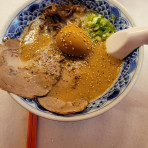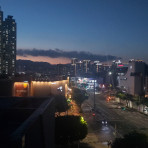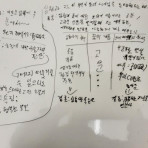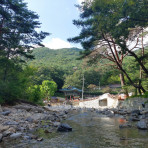N Korea reduces Cuba coverage as its ally enhances ties with South
본문
Mon, 26 Feb 2024 00:03:06 -0500

North Korean state-run media outlets have minimized their coverage of Cuba after the longtime ally since the Cold War established diplomatic ties with South Korea on Feb. 14.
The Rodong Sinmun, the North’s state-run daily, for instance, has not reported anything about Cuba since Feb. 15 when it briefly covered the Cuban Foreign Minister Bruno Rodríguez’s condemnation of Israel’s attack on Palestinians, as part of a summary of international news items.
Pyongyang’s official Korean Central News Agency has also not mentioned Cuba for more than a week.
Cuba was not even mentioned in KCNA reports on Feb. 23 and 24 on celebrations at diplomatic missions and U.N. representations in 26 countries and a series of congratulatory visits by dignitaries to mark the 82nd birthday of the former leader Kim Jong Il.
It is usual for North Korean media to omit Cuba when reporting national events such as the former leader’s birthday.
South Korea’s presidential office said on Feb. 15 that the country’s move to establish diplomatic relations with Cuba would deal a “political and psychological blow” to Pyongyang, whose diplomatic footing is largely dependent on a small number of Cold War allies.
South Korea did not have diplomatic ties with Cuba for 65 years.
Meanwhile, Cuba continues to maintain close relations with North Korea, which were established in 1960, with their shared socialist ideology and their hostility towards the United States. Cuba maintains an embassy in Pyongyang.
North Korean leader Kim Jong Un has called the late Cuban leader Fidel Castro a “comrade-in-arms,” as cited by its state media. North Korea even observed three days of official mourning in 2016 when Castro died at the age of 90.
Edited by Elaine Chan.
North Korean state-run media outlets have minimized their coverage of Cuba after the longtime ally since the Cold War established diplomatic ties with South Korea on Feb. 14.
The Rodong Sinmun, the North’s state-run daily, for instance, has not reported anything about Cuba since Feb. 15 when it briefly covered the Cuban Foreign Minister Bruno Rodríguez’s condemnation of Israel’s attack on Palestinians, as part of a summary of international news items.
Pyongyang’s official Korean Central News Agency has also not mentioned Cuba for more than a week.
Cuba was not even mentioned in KCNA reports on Feb. 23 and 24 on celebrations at diplomatic missions and U.N. representations in 26 countries and a series of congratulatory visits by dignitaries to mark the 82nd birthday of the former leader Kim Jong Il.
It is usual for North Korean media to omit Cuba when reporting national events such as the former leader’s birthday.
South Korea’s presidential office said on Feb. 15 that the country’s move to establish diplomatic relations with Cuba would deal a “political and psychological blow” to Pyongyang, whose diplomatic footing is largely dependent on a small number of Cold War allies.
South Korea did not have diplomatic ties with Cuba for 65 years.
Meanwhile, Cuba continues to maintain close relations with North Korea, which were established in 1960, with their shared socialist ideology and their hostility towards the United States. Cuba maintains an embassy in Pyongyang.
North Korean leader Kim Jong Un has called the late Cuban leader Fidel Castro a “comrade-in-arms,” as cited by its state media. North Korea even observed three days of official mourning in 2016 when Castro died at the age of 90.
Edited by Elaine Chan.
자유아시아방송 제공 및 저작권 소유 | RFA provided and copyrighted -www.rfa.org

North Korean state-run media outlets have minimized their coverage of Cuba after the longtime ally since the Cold War established diplomatic ties with South Korea on Feb. 14.
The Rodong Sinmun, the North’s state-run daily, for instance, has not reported anything about Cuba since Feb. 15 when it briefly covered the Cuban Foreign Minister Bruno Rodríguez’s condemnation of Israel’s attack on Palestinians, as part of a summary of international news items.
Pyongyang’s official Korean Central News Agency has also not mentioned Cuba for more than a week.
Cuba was not even mentioned in KCNA reports on Feb. 23 and 24 on celebrations at diplomatic missions and U.N. representations in 26 countries and a series of congratulatory visits by dignitaries to mark the 82nd birthday of the former leader Kim Jong Il.
It is usual for North Korean media to omit Cuba when reporting national events such as the former leader’s birthday.
South Korea’s presidential office said on Feb. 15 that the country’s move to establish diplomatic relations with Cuba would deal a “political and psychological blow” to Pyongyang, whose diplomatic footing is largely dependent on a small number of Cold War allies.
South Korea did not have diplomatic ties with Cuba for 65 years.
Meanwhile, Cuba continues to maintain close relations with North Korea, which were established in 1960, with their shared socialist ideology and their hostility towards the United States. Cuba maintains an embassy in Pyongyang.
North Korean leader Kim Jong Un has called the late Cuban leader Fidel Castro a “comrade-in-arms,” as cited by its state media. North Korea even observed three days of official mourning in 2016 when Castro died at the age of 90.
Edited by Elaine Chan.
North Korean state-run media outlets have minimized their coverage of Cuba after the longtime ally since the Cold War established diplomatic ties with South Korea on Feb. 14.
The Rodong Sinmun, the North’s state-run daily, for instance, has not reported anything about Cuba since Feb. 15 when it briefly covered the Cuban Foreign Minister Bruno Rodríguez’s condemnation of Israel’s attack on Palestinians, as part of a summary of international news items.
Pyongyang’s official Korean Central News Agency has also not mentioned Cuba for more than a week.
Cuba was not even mentioned in KCNA reports on Feb. 23 and 24 on celebrations at diplomatic missions and U.N. representations in 26 countries and a series of congratulatory visits by dignitaries to mark the 82nd birthday of the former leader Kim Jong Il.
It is usual for North Korean media to omit Cuba when reporting national events such as the former leader’s birthday.
South Korea’s presidential office said on Feb. 15 that the country’s move to establish diplomatic relations with Cuba would deal a “political and psychological blow” to Pyongyang, whose diplomatic footing is largely dependent on a small number of Cold War allies.
South Korea did not have diplomatic ties with Cuba for 65 years.
Meanwhile, Cuba continues to maintain close relations with North Korea, which were established in 1960, with their shared socialist ideology and their hostility towards the United States. Cuba maintains an embassy in Pyongyang.
North Korean leader Kim Jong Un has called the late Cuban leader Fidel Castro a “comrade-in-arms,” as cited by its state media. North Korea even observed three days of official mourning in 2016 when Castro died at the age of 90.
Edited by Elaine Chan.
좋아요1
이 글을 좋아요하셨습니다
관련링크
등록된 댓글이 없습니다.





































